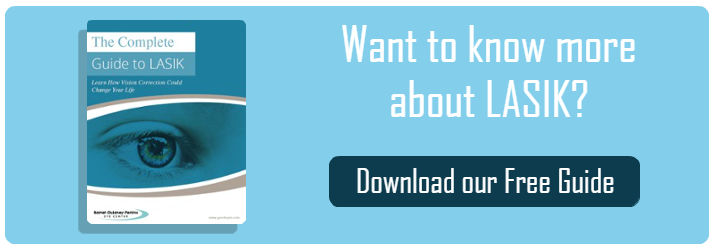
The good news is there are small changes you can make today that will support your vision health for many years to come. Keep reading to learn about basic preventive vision care options you can fit into your daily routine.
Beta-Carotene and Vitamin A
“Eat your carrots, or you’ll go blind!” Does that sound familiar? Well, your dear old mom was right to this extent – eating carrots can actually help you maintain good vision health. The human body uses beta-carotene to make vitamin A, and carrots are packed with beta-carotene.
Vitamin A helps the eye convert light into signals that can transmit to the brain. In cases of extreme vitamin A deficiency, the cornea can literally disintegrate. Each year, up to a half-million malnourished children around the world go blind due to severe vitamin A deficiency.1
Those who aren’t fans of carrots will be relieved to learn that many other foods are excellent sources of beta-carotene. Those foods include kale, spinach, and collard greens. These leafy green vegetables also happen to be full of lutein and zeaxanthin, which are two more nutrients important for maintaining good vision health.
Omega-3 Fatty Acids
You have read for years that you should eat more fish. For many people, this is sound advice. The omega-3 fatty acids found in fish, nuts, and leafy greens assist with heart health, inflammation reduction, and support good vision.
One of the components of omega-3s is docosahexaenoic acid (DHA), which is naturally concentrated in the retina. Maintaining DHA levels in the retina is connected to good macular health and prevention of dry eyes.2
Supplements
Getting the recommended vitamins and minerals from natural food sources is always best. However, supplements help millions of people cover their nutritional bases when they are not very good at eating a totally balanced diet, for whatever reason.
The most important minerals for supporting good eye health are lutein, zeaxanthin, zinc, and vitamins A, C, and E.3 Look for a supplement that contains the recommended amounts of these nutrients for your age, weight, and health condition. Also, consider taking an omega-3 supplement if you don’t regularly eat the recommended amount of source foods for this vital nutrient.
Glare Prevention and UV Protection
Many of life’s regular events can put our eyes in danger. While it’s important for all of us to spend time outdoors, remember to protect your eyes from the sun’s damaging rays. Ultraviolet light exposure is one of the leading causes of macular degeneration in adults. The best way to avoid this condition is to wear high quality sunglasses that offer UV-A and UV-B protection.
If you like to visit the beach or hit the slopes, remember that water and snow both reflect light from the sun. This higher concentration of light creates glare, which takes a toll on your vision health. Glare can also cause wrinkles and headaches by forcing you to squint, thereby reducing the amount of light allowed into your eyes.
Quit Smoking – Or Don’t Start
In addition to the numerous well-known risks associated with smoking, the addictive habit is now linked to age-related macular degeneration, cataracts, and optic nerve damage. All of these conditions can lead to blindness. Therefore, avoiding smoking is just as important for the quality of your vision as it is for the rest of your body’s health.4
Seek Regular Preventive Vision Care
All sunglasses and supplements in the world can’t replace the support of a good vision care specialist. Visiting your optometrist regularly to have your sight and eye health checked is the best way to slow or avoid deteriorated vision.
These visits are also the only reliable way to detect eye problems such as glaucoma or cataracts. Ask your optometrist how often you should go in for a preventive vision exam, and stick to the prescribed schedule.
Find Vision Health Care in Phoenix
With clinics located throughout Arizona, Barnet Dulaney Perkins Eye Center is ready to provide you with top quality preventive vision care no matter where you are in the state. Contact us today to schedule your annual preventive vision exam.
Sources
- Scientific American. Fact or Fiction?: Carrots Improve Your Vision. http://www.scientificamerican.com/article/fact-or-fiction-carrots-improve-your-vision/
- Bausch + Lomb. Omega 3 and Eye Health. http://www.bausch.com/reference/omega-3-and-eye-health#.Vxp-fjArLIU
- American Optometric Association. Diet & Nutrition. http://www.aoa.org/patients-and-public/caring-for-your-vision/diet-and-nutrition?sso=y
- Centers for Disease Control and Prevention. Eye Health Tips. http://www.cdc.gov/visionhealth/basic_information/eye_health_tips.htm


